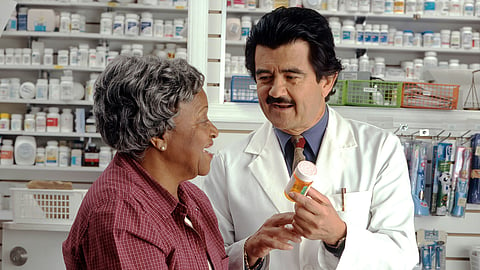PCI Proposes 5-Year Pharmacy Degree to Match Global Standards
In a move that could reshape the future of pharmacy education in India, the Pharmacy Council of India (PCI) has proposed a five-year integrated pharmacy program, drawing significant attention from educators and healthcare experts alike. This initiative could bring Indian pharmacy education up to par with international standards, especially those in the U.S., and address long-standing gaps in clinical training.
Why This Matters
India produces thousands of credible pharmacy graduates every year, yet many face challenges practicing abroad due to differences in education length and content. The U.S., for instance, requires five years of pharmacy education before a candidate can appear for the FPGEE (Foreign Pharmacy Graduate Equivalency Examination)—a key gateway for Indian pharmacists hoping to work internationally. [1] The proposed program would close that gap.
What's New
The new curriculum wouldn't simply extend the years—it would enrich the curriculum. Specialists argue that the additional year would be devoted to:
Increased Clinical Training: The extra year in the programme is anticipated to offer more in-depth clinical integration, emphasizing pharmacotherapy and patient care. This increase aims to prepare graduates with hands-on skills and information necessary for contemporary healthcare environments.
Integration of OSCEs: The programme aims to integrate Objective Structured Clinical Examinations (OSCEs) in order to enhance the evaluation of students' practical skills and communication skills, which have been a weak area of Indian pharmacy graduates in the past.
Specialized Tracks: The fifth year may provide specialized tracks in industrial pharmacy or clinical practice, enabling students to customize their education to career choices and refine their expertise.
On top of this, students may be able to pursue specialized tracks in their fifth year—such as clinical pharmacy or industrial practice—to align better with their chosen career paths.
Experts Support the Decision
Among the loudest supporters of the proposal is Akram Ahmad, one of the most well-known pharmacy education professionals and founder of Academically Global, an ed-tech company focused on pharmacy students. Ahmad feels this is a badly needed upgrade and draws an analogy between the proposed integrated course and the format of India's MBBS or BDS courses. "This could be a turning point for Indian pharmacy," he said, highlighting the way it could boost global mobility and lift the profession's home-grown prestige.
This could be a turning point for Indian pharmacy.
Akram Ahmad, Founder of Academically Global
What’s Next
While the proposal has yet to be approved, it has already generated spirited discussion among educators, healthcare practitioners, and scholars. If passed, it could change the future of pharmacy careers for thousands of students—not only making them more globally competitive, clinically proficient, and professionally competent, but also better poised to assume changing roles as members of multidisciplinary healthcare teams.
Outside India's boundaries, this step could enhance the global repute of Indian pharmacy degrees, paving the way for international licensure, global research, and cross-border collaborations. Within, it may promote the standing of pharmacists beyond dispensers to frontline clinical consultants, particularly within public health and hospital domains.
With growing demands from the healthcare landscape for more patient-oriented care, this reform may be the spur that will transform the study—and practice—of pharmacy in India.
If implemented, this could mark a new era for Indian pharmacy education—global in scope, clinical in focus, and empowered by reform.
References:
1. National Association of Boards of Pharmacy. "Foreign Pharmacy Graduate Equivalency Examination (FPGEE)." NABP. Accessed May 7, 2025. https://nabp.pharmacy/programs/foreign-pharmacy/fpgee.
(Input from various sources)
(Rehash/Sakshi Thakar/MSM)


